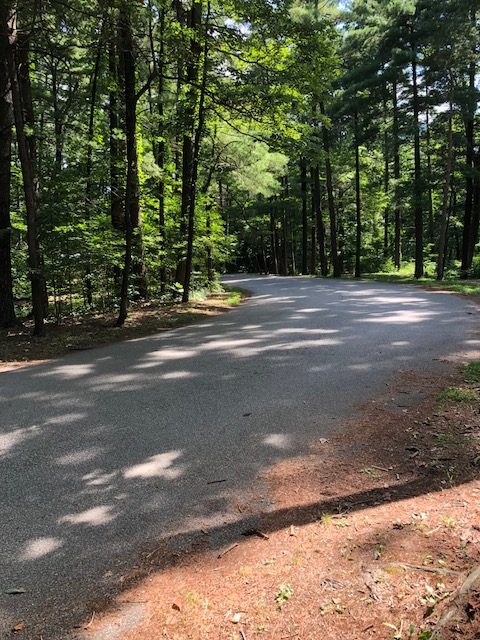by Donna Poole
It wasn’t my hometown.
It probably wasn’t your hometown.
It was everyone’s hometown.
We all have them—hometown heroes. People who overcome adversity and make the world a brighter place.
We met hometown heroes on our last day of our long weekend getaway. It was cold, raining, and the wind was whipping off an angry looking Lake Huron. We had to park across the road from the restaurant, and I was shivering when we finally got inside.
The host, a slightly built man, noticed my slow gait. “I know what it is to have mobility issues,” he said, glancing at me sympathetically. He tapped his right leg. We could tell by the sound it was a prosthetic. “I’m sitting you close to the buffet, so you won’t have far to walk.”
“Thank you,” I said.
“She has cancer,” John explained.
“I’m sorry!” He said it like he meant it. He understood. Suffering, of whatever kind, creates a bond of compassion.
Then he told us our server’s name and hustled off to seat other customers. And hustle is the correct verb. He walked fast with barely a limp.
John and I were grateful no one else was within sneezing distance. I’ve only recently been allowed back into the GP—general population. I try to obey my oncology team’s rules lest I get thrown back into solitary confinement, and I’ve had quite enough of that; thank you very much!
Some of my rules:
Always wear a mask.
Stay a good distance away from other people.
Don’t go into auditoriums—church or school.
I can occasionally go into a restaurant or a store if I keep about two hundred feet between me and the next person and yell, “Unclean! Unclean!”
Don’t eat at buffets.
But I eyed this buffet. Nothing was out in the open. Everything was behind high Plexiglass, even the dishes. The servers, also behind Plexiglas, filled plates and handed them to the customers.
It looked perfectly safe to me, and no one else was in line. I made a mad dash. Okay, to be honest, I made a slow limp for the line.
The food was amazing, especially the fresh fruit.
While I ate, I kept noticing the host. He had a smile and a cheerful greeting for everyone. We heard him exclaim with joy when he discovered he and a customer had attended the same high school, years apart, and knew several of the same people. I heard him laugh. I never heard a sigh or saw a frown.
It was still pouring outside, but it was warm and sunny in that restaurant. I don’t think my oncology team needs to worry; the only thing contagious in that place was friendliness. (Or that’s what I’m telling myself.)
Our waiter, a young man with dreadlocks to his shoulders and a gorgeous smile stopped to chat with us. He lives in Utah but was visiting his uncle in Michigan and working to make money to continue his college education in financial analysis.
His face glowed as he talked about expectations for his future.
“You’ll be good at it,” I said. “You have a great personality.”
He asked where we lived, and we told him. “You have a long drive home.” He looked at us and smiled. “You two are beautiful!” he said.
I don’t suppose many young men in their early twenties can look past wrinkles and old age spots and see the beauty of lifetime love. But he could.
John asked him if we should leave a tip on the table or if it would be included in our bill.
He shook his head. “People leave tips on the table here, but I don’t want a tip from you. I’ll give you a tip instead. You two take care of each other, you hear?”
We told him we would. And we left at tip on the table.
We headed out, and John paid our bill. I noticed our host standing still for once. He looked at me and smiled.
“You mentioned your leg?” I asked.
He nodded. “07 in Afghanistan. I was a medic transporter. It was my job to get the wounded onto the helicopter. I’d just gotten off the helicopter when someone fired an RPG—you know—one of those big shoulder rockets. Took out about my whole right side.”
He lifted his shirt to show me a wide white band around his waist.
“Broke my back and my shoulder. Took my entire leg. But I’m okay! I’m fine!”
I thanked him.
“Anytime, sweetheart,” he said. “Anytime.”
Head down against the wind, John and I returned to our car. We drove and parked to say goodbye to the lake, the bridge, and our short vacation. We talked about the hometown hero and the great sacrifice he’d made.
“John,” I said, “that young man who waited on our table? He said his college is in Utah, right? And he’s going back home as soon as he gets enough money?”
John nodded.
“It’s the end of September. He’s missing this semester. He must not have made enough money over the summer.”
But we’d heard no “poor me” in his voice, only a hope for good things coming.
Our server and our host had something in common. Life wasn’t all about them. It was about others.
One was a hero in a big, dramatic way, overcoming adversity most of us can’t even begin to imagine. The other was a hero in a quiet way, overcoming adversity of an everyday variety.
Both made our day brighter.
Both made me want to be a hometown hero too.


